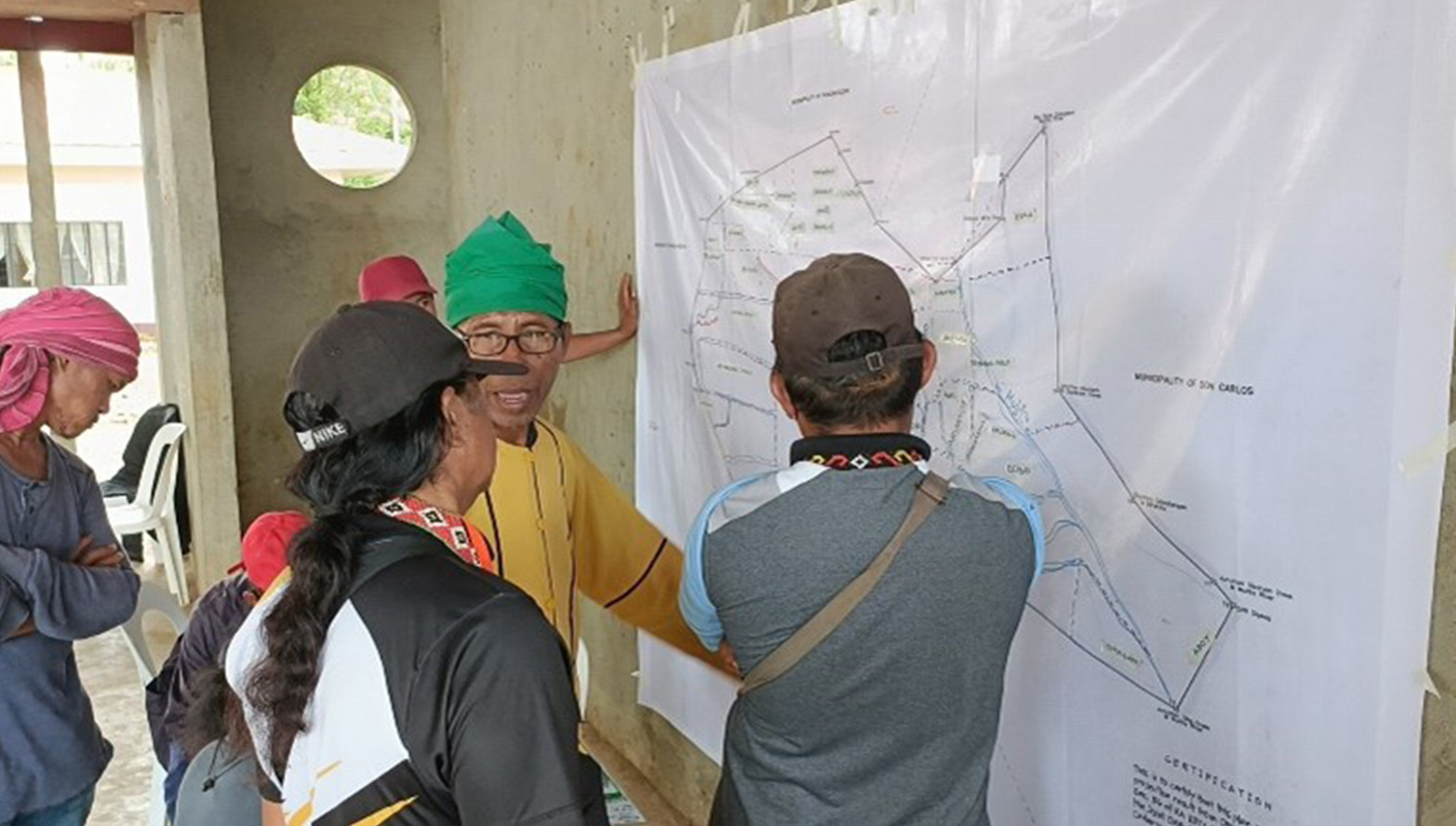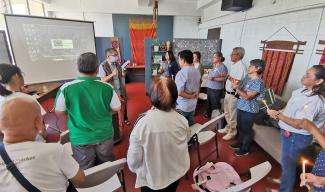By Bernadie Jamora/Samdhana Institute
Culture serves as the ultimate refuge for the survival and progress of a tribe. Such is the case for the Menuvu belonging to the Kirinteken-Ilantungen Ancestral Domain, duly recognized by the government through the Certificate of Ancestral Domain Title 206 in Southern Bukidnon. The Kirinteken-Ilantungen Ancestral Domain straddles seven towns namely, portions of Maramag, Don Carlos, Pangantucan, Kalilangan, Kitaotao and Kadingilan, and is inhabited by 48 gaup or clans. The tribe struggles with corporate agricultural activities and infrastructure projects that have encroached into their territory without their consent.
Sezukadang, one of the Menuvu communities in Don Carlos town belongs to the Kirinteken-Ilantungen Ancestral Domain. Like other areas, it is confronting the threats caused by the unwanted entry of a banana plantation and road projects to their livelihood, and the damage to their sacred grounds and environment. The ancestral land in Sezukadang, which belongs to the Ompigan clan, is where they grow crops for their daily consumption.
Community members lamented that the road project desecrated their sacred burial grounds, resulted in the cutting down of balete trees and other violations against customary law. In addition, the use of chemicals in the banana plantation established in 2022 has created fears it might endanger their health as well as the immediate environment. These projects were implemented without getting the community's Free and Prior Informed Consent or FPIC as required under Republic Act 8371 or the Indigenous Peoples Rights Act (IPRA) of 1997.
IPRA provides a legal framework for the recognition of Indigenous Peoples rights to their ancestral lands to ensure their social, cultural and economic wellbeing. Four bundles of rights are enshrined therein — right to ancestral domain, right to self-determination and empowerment, right to cultural integrity, and right to social justice and human rights.
Sezukadang’s situation, on top of other land and natural resource conflicts in the other communities, and internal leadership issues within CADT 206, led to an awakening among the Menuvu that they should focus on strengthening self-governance to assert their right to self-determination and empowerment.
The Sezukadang community in particular, is focused on strengthening their Muney Neked Peneng Uwit, or Indigenous Political Structure (IPS) of governance. Through a consistent practice of buron-buron, or a gathering of all community leaders and members where they tackle problems and come up with actions in a collective manner based on their cultural values, they continue to remain united and address the issues before them.
Datu Benjie Ompigan, Punggus (Head Leader) of Serukadang explained: “Addressing community concerns can be made easier through buron-buron and cooperation, particularly in asserting the rights of the tribe. It makes us prepared to face threats that may affect the tribe. And, through tigker, or humility we can overcome all challenges.” Through decisions agreed during buron-buron, Sezukadang was able to demand to the Barangay Local Government Unit (LGU) and to the road project contractor to pay for the damages and conduct a ritual as part of the process to seek acceptance from the community. The community members have also sent letters to government agencies, to the National Commission on Indigenous Peoples, and to LGUs in relation to the entry of the banana plantation sans FPIC.
Meanwhile, the Menuvu indigenous people's organization, Unified Kirinteken-Ilantungen Menuvu Tribal Council (UKIMTRICO), has undertaken steps to strengthen each clan through dinegey (Menuvu term for listening, and also refers to their plan to conduct assemblies), to collectively discuss problems and give solutions. It also held a leadership training among the gaup leaders.
As for the Menuvu youth, they are deepening their understanding of their rights, through their organization Neumpung ne Memenguhed Te UKIMTRICO (NMTU), and with the continuous guidance of the UKIMTRICO leaders. Aside from learning about their rights, they are increasing their environmental consciousness particularly through establishment of tree nurseries of endemic species, and tree-growing activities in at least eight communities inside the domain to date. More importantly, they strive to be molded in the ways of their culture and tradition, especially in learning to speak Menuvu.
The Muney Neked Peneng Uwit is the fuel that enables the Menuvu to reclaim the control of their land and life. Through their self-governance, they are building back their dignity as a people. ###
#yestheycan





